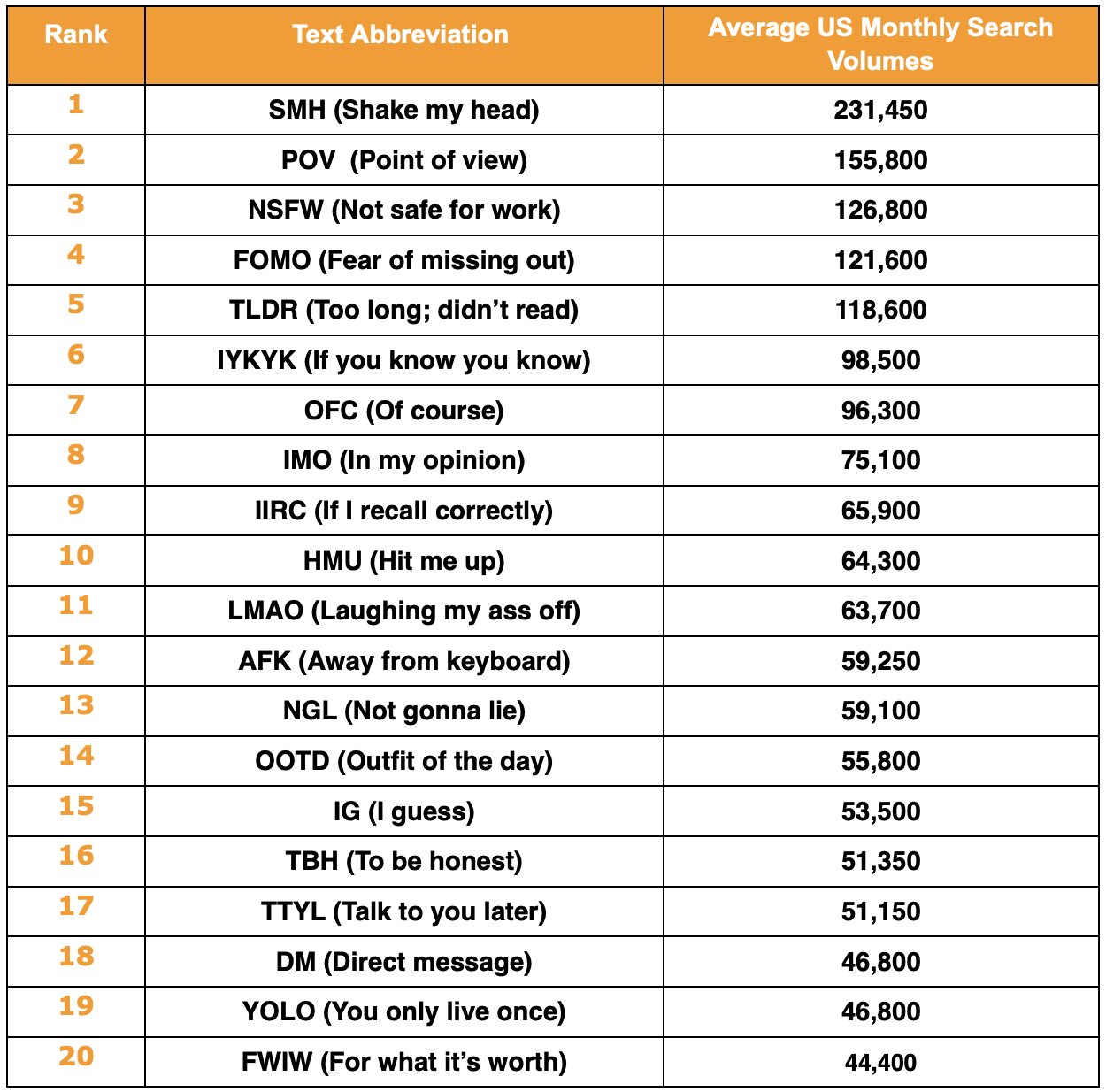Gen Z is rewriting the rules of communication at lightning speed, constantly swapping out slang. This rapid change is fueled by their plugged-in lifestyle, where yesterday’s lingo is already old news. Inspired by this, business admin experts Vera set out to identify the text abbreviations that confuse Americans the most. They extracted US search volume data from online analytics tool Ahrefs for 114 different abbreviations, with variations including ‘X meaning’, ”What does XX mean’, ‘XX definition’.
MORE NEWS: 7 Arizona cities make list of 100 fittest cities
SMH or LMAO? The most baffling text abbreviations, revealed :
- SMH (shake my head) tops the list of the most searched-for text abbreviations, with 231,450 average US monthly searches.
- In second position is POV (point of view) in second position with 155,800 average US monthly searches.
- All the abbreviations in the data have amassed more than 3 million average US monthly searches.
Top 20 most Googled text abbreviations in the U.S.

SMH (shake my head) secured the top spot with a staggering 231,450 average US monthly searches asking for its meaning. It was added to the Urban Dictionaryback in 2004, defining it as a response to situations one finds ridiculous or stupid, which has garnered over 25,000 upvotes since then.
The second most confusing abbreviation is POV (point of view) with 155,800 average US monthly searches. POV has become a popular tag in digital content, where creators craft videos that immerse viewers in various scenarios, from everyday moments to imaginative scenes. Its dual role as both a technical term in traditional media and a trendy format in social media has made it one of the most searched-for abbreviations in the US.
In third place is NSFW with 126,800 average US monthly searches. NSFW stands for ‘Not Safe For Work,’ indicating that a post may contain content that is inappropriate to view during work hours or on a work computer.
With the rise of short-form content on platforms like TikTok, attention spans are shorter than ever, making it no surprise that TLDR (too long; didn’t read) ranks 5th with 118,600 average US monthly searches. Despite reports that YOLO is now considered old-fashioned, it still ranks 19th with 46,800 average US monthly searches, indicating that it retains intrigue for some.




